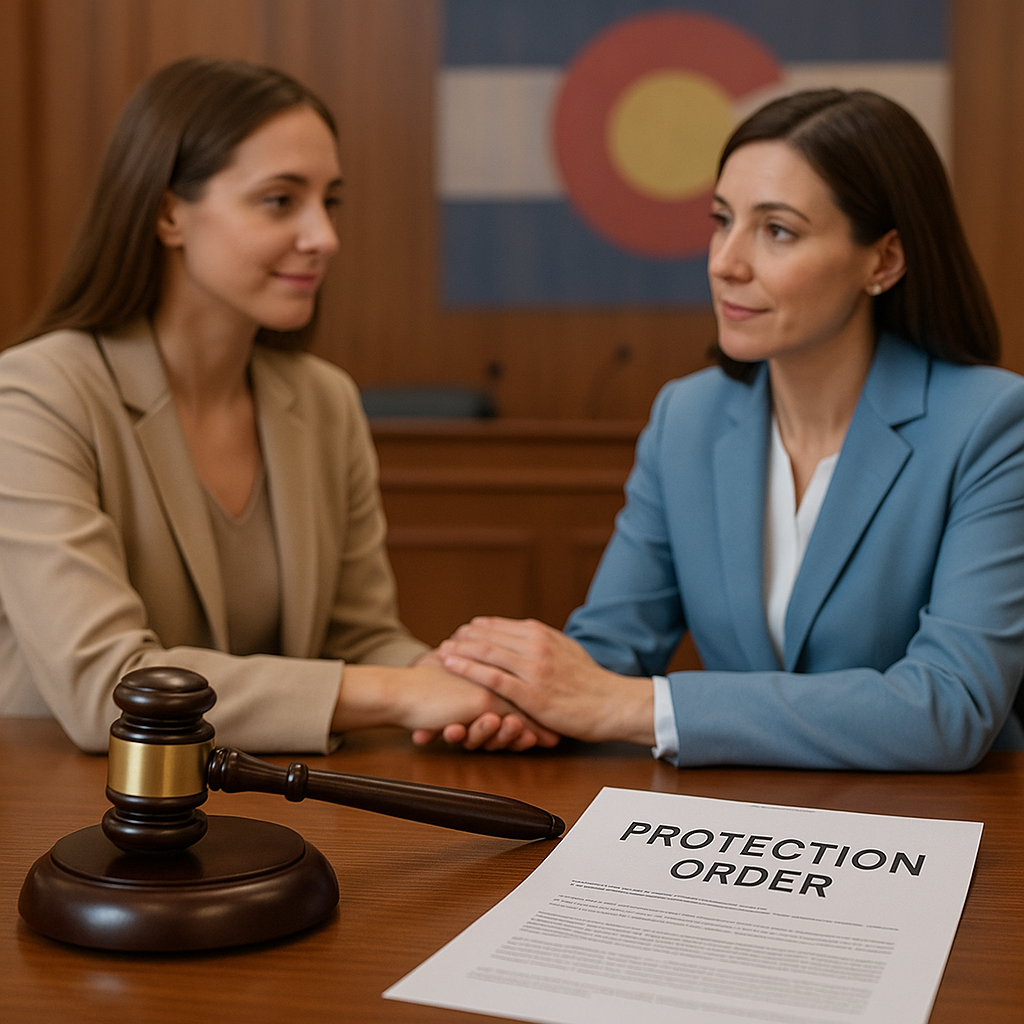
Understanding Colorado’s Protection Orders: Who Can File and What They Cover
Protection orders (also known as restraining orders) are powerful legal tools designed to protect individuals from threats, harassment, or abuse. Whether you need protection or are the subject of an order, understanding your rights is crucial.
Types of Protection Orders in Colorado
Colorado law recognizes several types of protection orders:
-
Temporary Civil Protection Order (TPO): Can be granted immediately based on a sworn affidavit. It’s typically issued without a hearing and is valid until the court date.
-
Permanent Protection Order (PPO): Granted after a hearing where both parties can present evidence. This order can last indefinitely.
-
Mandatory Criminal Protection Orders: Automatically issued in criminal cases involving domestic violence or other violent crimes.
Who Can File for a Protection Order?
You can request a protection order if you have been the victim of:
-
Domestic violence
-
Sexual assault
-
Stalking
-
Harassment
-
Threats or physical abuse
LunaLaw helps clients file comprehensive and well-supported petitions to maximize the chances of receiving protection.
What Do Protection Orders Cover?
Protection orders can include:
-
No-contact provisions
-
Stay-away requirements (home, workplace, school)
-
Custody or visitation restrictions
-
Firearm surrender
Violating a protection order in Colorado is a criminal offense and can lead to arrest, jail time, and additional charges.
What If You’re Falsely Accused?
Unfortunately, protection orders can be misused. If you’ve been served with an order you believe is unjustified, LunaLaw can help defend your rights and fight for a fair outcome.
We’re Here for You—On Either Side of a Protection Order
Whether you’re seeking safety or facing allegations, LunaLaw offers compassionate yet assertive legal representation. Let us help you navigate this critical situation with care and clarity.
